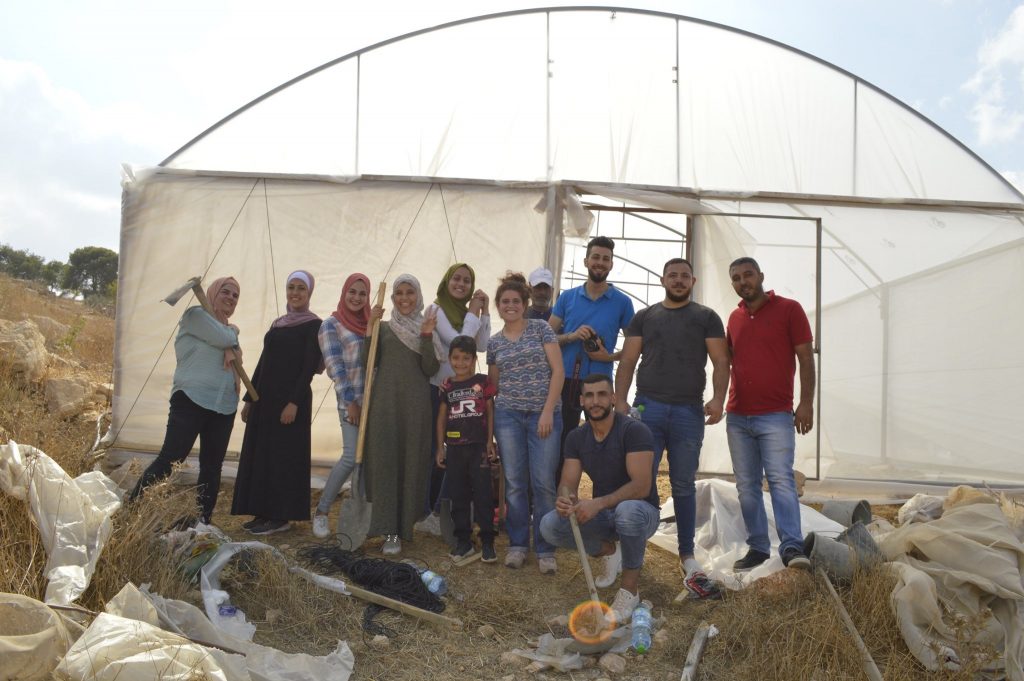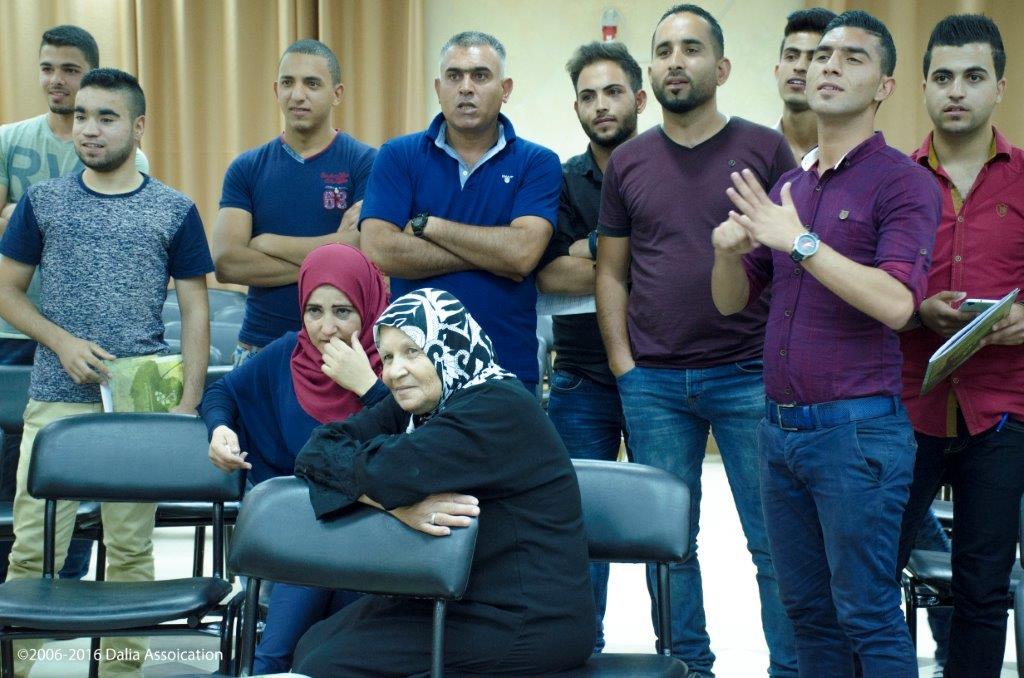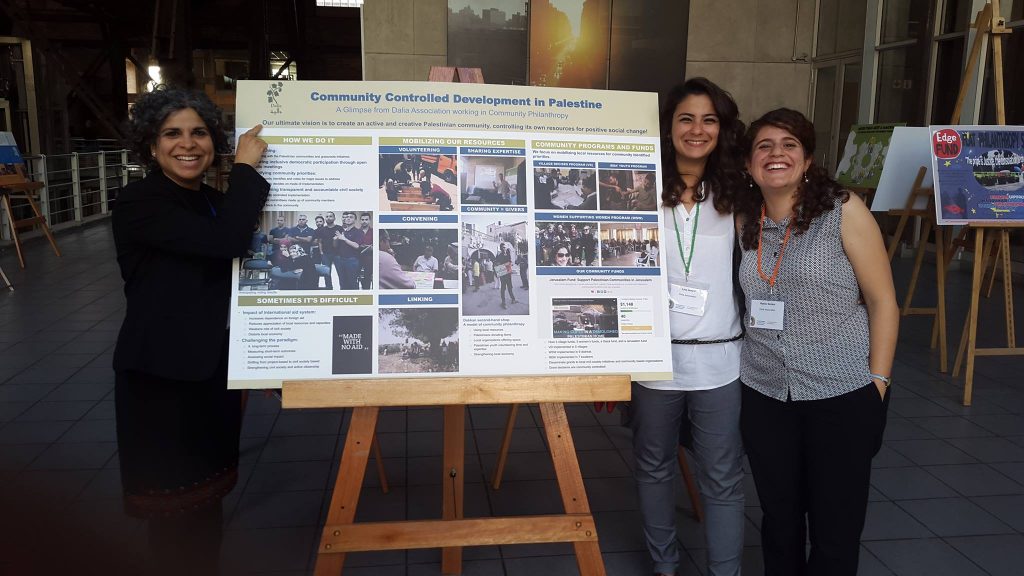This blog first appeared on the Treehouse (ShiftThePower platform) on August 8 20201.
By Rasha Sansur
24th February 2021 marked my first meeting as the new #ShiftThePower Platform Coordinator with the Global Fund for Community Foundations (GFCF). I was meeting with Renji George Joseph from the Dalit Community Foundation in India, a visionary philanthropic institution based in Bihar and working in pursuit of the rights and dignity of Dalits, one of India’s most oppressed communities.
We discussed the gaps in the aid and development systems that the platform could highlight. He remarked that grantmaking is too often top-down and prescriptive – leading to proposals being submitted that, in the end, don’t reflect community priorities but rather those of distant decision-makers. Our common struggles with too often frustrating donor behavior made the rest of our conversation smooth, and I could sadly relate when he commented that: “The dreams of the community are taken away from them because funders and donors have their own priorities and their own modus operandi.”
“The dreams of the community are taken away from them because funders and donors have their own priorities and their own modus operandi.”
Living under Israeli occupation attracted the development aid industry. Until recently, Palestine was one of the highest recipients of aid per capita, following the 1993 Oslo Accords massive injection of aid aimed at establishing a two-state solution. This created worrying levels of donor dependency and had negative impacts on the local civil society. Dreams of a free Palestine became more remote, and international aid, with all of its conditions and its insistence on short-term projects, served only to further stymie them.
This led a group of local activists to establish the Dalia Association in 2006. It was through Dalia that my journey to “shift power” began. Its vision of realizing Palestinians’ rights of controlling our own resources for durable development, using community philanthropy and participatory grantmaking was, to me, an approach that provided a potential path towards the self-determination that we have been struggling for since 1948. Dalia helped revive local traditions of giving known as Al Ouneh (“Help” in Arabic). This Ouneh peaked during the First Intifada (Uprising) in the late 1980s and 1990s, with local committees being set up to restore some sense of “normalcy” under occupation. They provided services such as healthcare, education and helped to support the local economy.

Unlocking people’s power
The effects of donor dependency on local communities became evident when I visited a village in the District of Bethlehem. During this first visit for the Dalia team, we were greeted with enthusiasm. We were bombarded with questions, along the lines of “What types of projects do you fund?” Our response was: “We don’t have any specific framework, as long as the idea supports solving issues in your community.” The initial excitement quickly waned when they discovered that our funding was limited, as we had two grants with a value of $2,500 USD each, as opposed to INGOs whose budgets were in the hundreds of thousands of dollars. They wondered “What difference can we make with this?”, “What do you want us to do with this small amount?”
Over time, I began to see similar responses whenever we worked with new communities, especially with the youth. This never stopped us; instead, it energized us and gave us a sense of purpose.
During visits, we learned from the community and, I liked to think, they learned from us. We encouraged people to look at their resources, identify their needs beyond the limitations of a fixed project focusing on a single issue. This proved successful. In some instances, the local resource mobilization part was so successful that the leaders of the initiatives found themselves with extra money to spare.

What we had to offer was active listening: we suggested but never imposed. We were simply facilitators for a process of collective decision-making. We encouraged people to break away from a “beneficiary” culture to become proactive “doers.”
I came to see that in our dependency we had forgotten our collective dreams and our treasure trove of skills and local resources. Organizations like Dalia, and the Dalit Community Foundation, remind us that we can revive our aspirations by trusting our abilities to realize them.
I came to see that in our dependency we had forgotten our collective dreams and our treasure trove of skills and local resources. Organizations like Dalia, and the Dalit Community Foundation, remind us that we can revive our aspirations by trusting our abilities to realize them.
Raising the visibility of emergent and alternative approaches
“What we are is a third category, and in that category, all of us fit: environmental funds, human rights funds, women funds, community funds, but we don’t talk to each other enough, so we don’t show up […] we are building the field within our own societies. Nobody can do that for us, but we are not recognized yet.”
In another conversation I had as the #ShiftThePower platform was taking shape, I found myself nodding in agreement with this comment from Maria Amália Souza of the Casa Socio-Environmental Fund, a Brazil-based regional grantmaking fund. Others raised the issue of invisibility too. The hashtag #ShiftThePower has enabled these “invisible” organizations to be seen. Several of the people I spoke to also mentioned loneliness and isolation. Having a sense of community, a shared space for connection and advocacy was important, a reminder, according to Barbara Nöst from the Zambian Governance Foundation, that “We are not on a lonely journey as community philanthropy practitioners,” and that “The platform will serve as a reminder of our joint purpose”.
Back in December 2016, when I was live-tweeting from the Global Summit on Community Philanthropy in Johannesburg, I arrived at a deeper understanding of the philosophy of my work at Dalia. Of course, I had been aware of the importance of self-determination, but I didn’t realize that we were actually shifting power.

“Only institutions that create and distribute power through local and global networks can effectively challenge traditional top-down leadership models in philanthropy and development,” commented Irũngũ Houghton, one of the founders of the Kilimani Project Foundation in Kenya.
During conversations with peers from around the world who identify with the spirit of the #ShiftThePower movement, what has struck me is the importance of the core values that underpin it. In Renji’s words, “Dignity counts, dreams, however small, they count too. [The #ShiftThePower community] should send the message that we shall have no hidden agenda other than community philanthropy, solidarity, mutual support, and commitment.”

